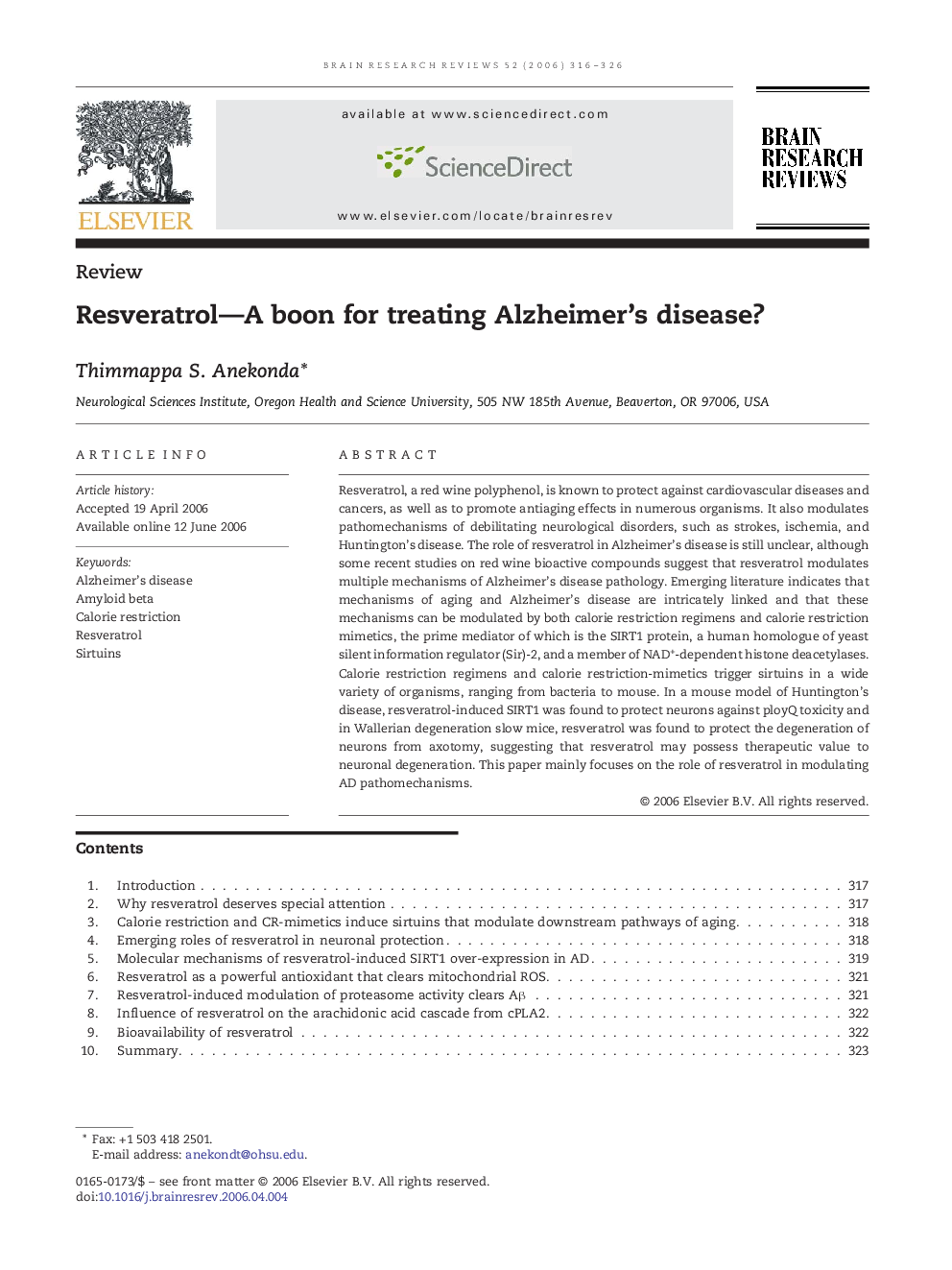| Article ID | Journal | Published Year | Pages | File Type |
|---|---|---|---|---|
| 4334094 | Brain Research Reviews | 2006 | 11 Pages |
Resveratrol, a red wine polyphenol, is known to protect against cardiovascular diseases and cancers, as well as to promote antiaging effects in numerous organisms. It also modulates pathomechanisms of debilitating neurological disorders, such as strokes, ischemia, and Huntington's disease. The role of resveratrol in Alzheimer's disease is still unclear, although some recent studies on red wine bioactive compounds suggest that resveratrol modulates multiple mechanisms of Alzheimer's disease pathology. Emerging literature indicates that mechanisms of aging and Alzheimer's disease are intricately linked and that these mechanisms can be modulated by both calorie restriction regimens and calorie restriction mimetics, the prime mediator of which is the SIRT1 protein, a human homologue of yeast silent information regulator (Sir)-2, and a member of NAD+-dependent histone deacetylases. Calorie restriction regimens and calorie restriction-mimetics trigger sirtuins in a wide variety of organisms, ranging from bacteria to mouse. In a mouse model of Huntington's disease, resveratrol-induced SIRT1 was found to protect neurons against ployQ toxicity and in Wallerian degeneration slow mice, resveratrol was found to protect the degeneration of neurons from axotomy, suggesting that resveratrol may possess therapeutic value to neuronal degeneration. This paper mainly focuses on the role of resveratrol in modulating AD pathomechanisms.
